- Heritage 101
- Advocacy
- Accessibility for Historic Places
- Climate & Sustainability
- Cultural Maps
- Heritage Place Conservation
- Heritage Policy & Legislation
- Homeowners
- Intangible Cultural Heritage
- Reconciliation
- Indigenous Cultural Heritage
- Setting the Bar: A Reconciliation Guide for Heritage
- 1. Heritage and Reconciliation Pledge
- 2. Acknowledging Land and People
- 3. Celebrating Days of Recognition and Commemoration
- 4. With a Commitment to Learn
- 5. Committing to Strategic Organizational Diversity
- 6. Mission-Making Room for Reconciliation
- 7. Possession, Interpretation, Repatriation and Cultural Care
- 8. Shared Decision Making
- 9. Statements of Significance and other heritage planning documents
- 10. Heritage Conservation Tools, Local Government Act
- Racism: Do Not Let the Forgetting Prevail
- Taking Action: resources for diversity and inclusion
- Webinars On-Demand
Safeguarding ICH in BC
Can you comment on BC’s current practice and safeguarding intangible heritage? What are the specific challenges and threats unique to British Columbia?
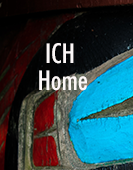 |
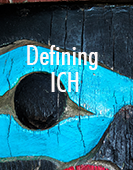 |
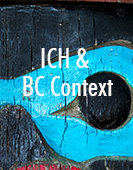 |
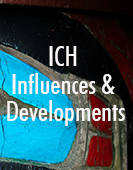 |
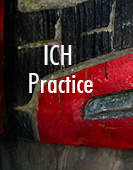 |
 |
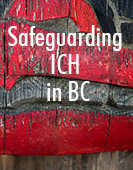 |
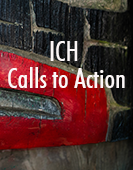 |
George
In British Columbia, the Heritage Conservation Act is a potentially powerful piece of legislation that includes provisions to accommodate First Nations’ interests, including concerns about the protection of sacred sites and ancestral grounds and other aspects of heritage beyond the artifacts and archaeological sites that is the material evidence of past people’s occupation here. (See note 1 below)
Within the province, 99.9% of all heritage sites are the legacy of First Nations. The problem is that there continues to be this emphasis on the material on the tangible. While the intangible is acknowledged, I think that those charged with oversight of the Heritage Act, as well as those archaeologists working in the heritage management industry (charged with checking forestry “cut blocks”) are really at a loss in terms of how to deal with intangible heritage, let alone recognize and protect it.
It is only by working with and talking to those peoples whose land it is—those who hold the stories and the intangible knowledge that goes with objects and places on that land— that can we make any headway here. As the three of us have been discussing, we can’t talk about the tangible without the intangible. They really are indivisible at a fundamental level.
And so, for this reason, we continue to see in British Columbia case after case where developers run into a problem, where there are sacred places that are being threatened. For example, the Ktunaxa, Qat’muk (“where the Grizzly Bear Spirit resides”) is a mountain sacred to them. They sought protection from the Supreme Court of Canada to have it protected from development for a ski resort. (See note 2 below)
The problem is this: how do developers, and indeed legislators in British Columbia, deal with the intangible aspects of Indigenous heritage when it is so difficult to uphold the limited provisions of the BC Heritage Act?
Furthermore, there is the conundrum that sacred places are difficult to deal with and protect, especially when indigenous people say they can’t tell you where it is because doing so runs counter to how we need to protect that information.
On the other hand, if we don’t know where the sacred places are, how can they be avoided if that is an option? These are just a few of the problems with operationalizing the existing legal and moral obligations that the province already has.
Agnieszka
Operationalization is definitely something we need to jump on and work on first. This conference is a good start, and with the large number of individuals interested in ‘the idea of cultural heritage and now, in ‘intangible heritage’, I think there are a lot more people aware of the ICH discourse. A lot of people are reassessing their approach to how they will do their heritage work, how their relationship is to the objects they touch, and what meaning that object has meaning to them.
I think this is a good start. I think we’re on the right track moving in the direction of looking at heritage in a more broader, more comprehensive way. And I think this is a success in BC. I think that people who are interested are already joining in the conversation and changing their approaches to their work and methodologies. That is a success.
There are gaps, of course. Operationalization is missing and the approach of resource exhaustive projects to heritage is very problematic. Finally, the obvious one: looking at heritage is a tangible way only is limiting. This is especially a concern when we go about protecting heritage, especially Indigenous Heritages. This is a string that needs to be pulled on much, much stronger in future discussions.
Katharine
I wouldn’t say that I know the policy situation in BC well enough to really be able to comment. But I will say that taking a big, big step back from the really important and specific issues that the other panelists have brought up… The First Peoples Cultural Council (FPCC) is a great model and has been doing incredible work for Indigenous languages and cultural heritage in BC. I don’t think that there’s a similar organization, an Indigenous-led provincial crown Corporation, anywhere else in the country. I think that’s a real success story found in BC.
That’s not to say that the same model should apply everywhere, but they are clearly delivering programs in a way that is culturally relevant and that adheres to the principles of Indigenous ownership of Indigenous cultural heritage.
Through their Sense of Place grant, they’re doing really cool land-based programs, their work on the Our Living Languages exhibition at the RBCM, and the massive international Indigenous languages conference they held in 2019, are all examples to highlight.
Note 1: See George Nicholas. “Culture, Rights, Indigeneity, and Intervention: Addressing Inequality in Indigenous Heritage Protection and Control.” In Archaeologies of ‘Us’ and ‘Them’ –Debating the Ethics and Politics of Ethnicity and Indigeneity in Archaeology and Heritage Discourse, edited by C. Hillerdal, A. Karlström, and C-G. Ojala, 199–216. London: Routledge.
Note 2: The court initially ruled against them, wrongly concluded that the spiritual focal point of their worship would not be affected, failing to understand that the Grizzly Bear Spirit would be driven away. Although the decision was reversed in 2020, it took over 20 years of prolonged effort and expense by the Ktunaxa to protect this location vital to their beliefs. See Robinson, A. 2020. “Governments must not wait on courts to implement UNDRIP rights concerning Indigenous sacred sites: lessons from Canada and Ktunaxa Nation v. British Columbia.” The International Journal of Human Rights 24 (10): 1642-1665.
